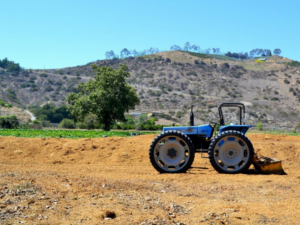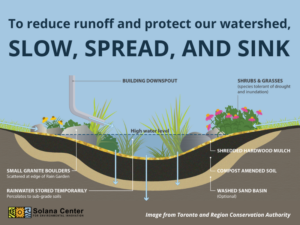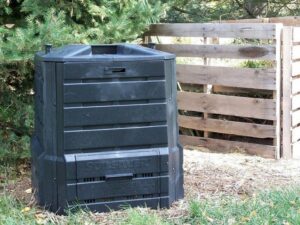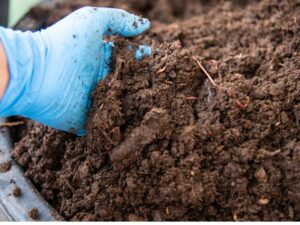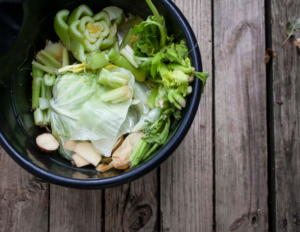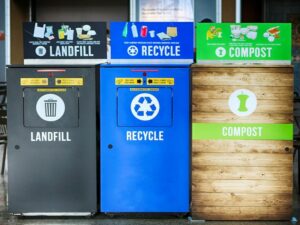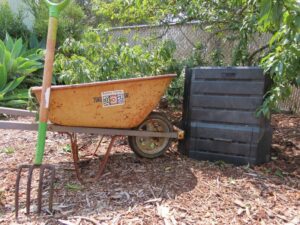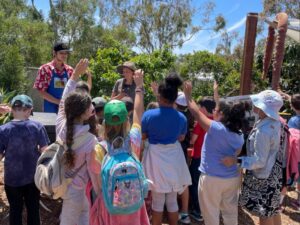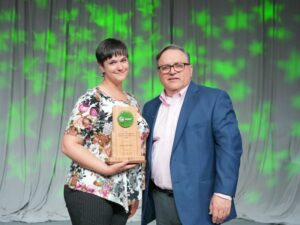Soil & Compost
Build Healthy Soils with Free Assistance to Secure up to $100,000 Grant Funding!
Join Solana Center for Environmental Innovation (Solana Center) for a free technical assistance webinar for farmers and ranchers to learn more about applying for up to $100,000 in state grant funding. Assistance is provided by the California Department of Food and Agriculture’s (CDFA) Healthy Soils Program (HSP) for farmers to implement conservation management practices that…
Read MoreFrom the Rotline: How Can I Slow, Spread, & Sink Water With Compacted Clay Soil?
Slowing, spreading, and sinking water are common strategies for gardeners looking to create water wise landscapes. Clay soil poses unique challenges when it comes to slowing, spreading, and sinking. When clay soil is very compacted, water pools on top and very slowly percolates into the ground. Luckily, there are some options to speed up the…
Read MoreCompost Bin Discounts and Vouchers
Looking to start composting at home? Many jurisdictions throughout the San Diego region offer discount programs for their residents. Your eligibility for discounted bins will depend on what jurisdiction you live in. It is important to check your exact address, because you may not necessarily live in the city listed in your address, e.g. a Vista address…
Read MoreFrom the Rotline: How Can I Harvest My Worms’ Castings?
The ability to harvest small handfuls of worm castings as needed is a thing of composting beauty. However, in order to ensure that your vermicomposting system diverts the greatest volume of organic material and supports the healthiest worm population, it’s important to fully harvest and refresh the tray(s) every so often! You will know that…
Read MorePre-Composting Appliances: Do They Work?
We get questions about pre-composting appliances often these days. Our verdict: While food scrap dryers and grinders can do amazing things, they cannot make compost in less than several months’ time. They are also not the most effective way to reduce your environmental footprint at home. The Dirt on Countertop “Composters” There are several kitchen…
Read MoreThe Benefits of Diverting Organic Waste from Landfills
Written by volunteer: Kate Sheppard Diverting waste from landfill can sometimes feel like a chore, but the benefits far outweigh the temporary annoyance of getting your hands dirty. This is especially true of organic waste. Yes, it may occasionally be sticky or smelly, but it’s not hard to properly sort and divert these compostable materials…
Read MoreFrom the Rotline: Where should I position my compost bin?
There are several things to keep in mind when choosing a location for your compost bin. Sun or shade? A worm bin is best placed in the shade. Worms do not fare well in hot temperatures or during a deluge of water during a rainstorm. By placing them in the shade, they will be more…
Read MoreSuccess Stories: Serving Underserved Communities & Schools in the San Diego Region
At the core of Solana Center’s mission is education. Teaching our community about soil, waste, and water is one of the key tools in making real, lasting, positive changes for our environment. We believe that education, innovation, and action are required to address the environmental challenges in our region and know that with each child…
Read MoreNew Resource Guide: 4 Most Common Healthy Soil Farming Practices
Did you know the California Department of Food and Agriculture’s (CDFA) Healthy Soils Program (HSP) provides financial assistance to California farmers, growers, and ranchers for implementation of one or more HSP agricultural management practices to improve soil health, including compost & mulch application, cover cropping, no-till methods, conservation planting, and more? During the last solicitation period, CDFA allocated $67.5 million worth of HSP awards,…
Read MoreSolana Center for Environmental Innovation Honored with National Organics Diversion Program of the Year Award
Esteemed national organization US Compost Council recognizes local environmental leader and Encinitas non-profit for impacts in composting education and program implementation SAN DIEGO – The United States Composting Council (USCC) awarded the esteemed achievement award for Organics Diversion Program of the Year to Solana Center for Environmental Innovation which pioneered the first comprehensive curbside recycling…
Read More
